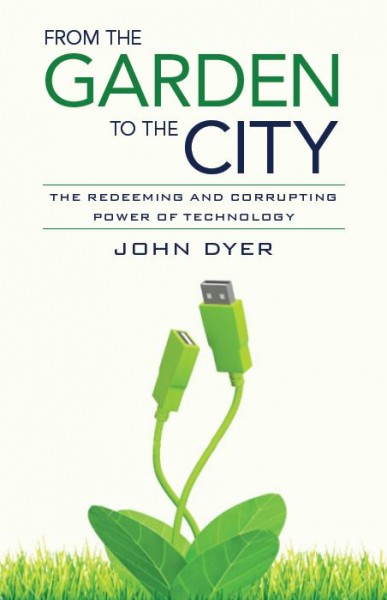Gun's Don't Kill People, People Kill People | John Dyer
 I'm chillin' on a blog tour promoting From the Garden to the City: The Redeeming and Corrupting Power of Technology by John Dyer. A post from me every week, plus more at host site: ChurchM.ag. Check it out..
I'm chillin' on a blog tour promoting From the Garden to the City: The Redeeming and Corrupting Power of Technology by John Dyer. A post from me every week, plus more at host site: ChurchM.ag. Check it out..
Chapter 6: Approach
101 Basics:
"Guns don't kill people, people kill people,"
goes the quote. I first recall it from hand-painted billboards posted at the edges of state highways in rural Illinois. John Dyer uses this as an example of instrumentalism, the idea that technology remains neutral, and that people imbue it with good or bad. He disagrees. So do I.
"Technology makes us..."
is the other side, more technically known as technological determinism. This is the view that technology is the leading force in societal change, and what people are believing when they wish away new technologies that are supposedly causing problems (TV is making us fat!).
Which is right? (Dyer says: middle way).
Read the rest of the blog tour at ChurchMag -->
301 Level Critique. (more for the nerds)
I fall closer to the technological determinism side. I wonder if Dyer would too if he changed his definition a bit. He focuses mostly on the individualistic effects of technologies (e.g. my cell phone makes me over-available), and he says determinism might say that we don't have a choice, we must answer. But this isn't the kind of determinism I've ever read about. What is might be more accurate is to day that determinism says that your individual choice to answer or not answer becomes insignificant in the wave of ecological change that the cell phone brings as a whole. Put another way, plenty of my friends who are dads started out with "I'm not gonna answer that thing," but now would be in serious trouble with the wife if they didn't pick up. This isn't technology forcing their personal choice. This is technology remaking societal expectations in relationships (and that's in the short run!).
I also think that technological determinism and societal values, which Dyer sets as disparate instigators for change are often inseparable when looking at effects. Does the value make the technology or the technology make the value? Both! The recipe required both for the change to occur. To take Dyer's example—cars in America vs. individualism as a American value—the individualism might have existed prior to the cars, but you didn't see the wide-scale change until the cars were mixed in. Oh, and the interstate system.
